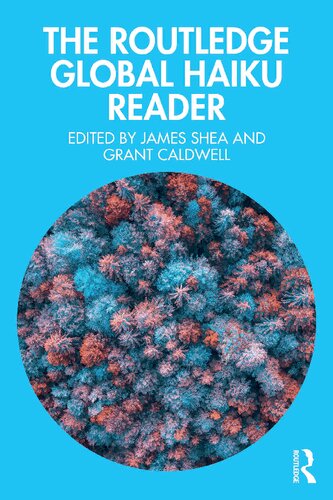

Most ebook files are in PDF format, so you can easily read them using various software such as Foxit Reader or directly on the Google Chrome browser.
Some ebook files are released by publishers in other formats such as .awz, .mobi, .epub, .fb2, etc. You may need to install specific software to read these formats on mobile/PC, such as Calibre.
Please read the tutorial at this link: https://ebookbell.com/faq
We offer FREE conversion to the popular formats you request; however, this may take some time. Therefore, right after payment, please email us, and we will try to provide the service as quickly as possible.
For some exceptional file formats or broken links (if any), please refrain from opening any disputes. Instead, email us first, and we will try to assist within a maximum of 6 hours.
EbookBell Team

0.0
0 reviewsThe Routledge Global Haiku Reader provides a historical overview and comprehensive examination of haiku across the world in numerous languages, poetic movements, and cultural contexts. Offering an extensive critical perspective, this volume provides leading essays by poets and scholars who explore haiku’s various global developments, demonstrating the form’s complex and sometimes contradictory manifestations from the twentieth century to the present.
The sixteen chapters are carefully organized into categories that reflect the salient areas of practice and study: Haiku in Transit, Haiku and Social Consciousness, Haiku and Experimentation, and The Future of Global Haiku. An insightful introduction surveys haiku’s influence beyond Japan and frames the collection historically and culturally, questioning commonly held assumptions about haiku and laying the groundwork for new ways of seeing the form. Haiku’s elusiveness, its resistance to definition, is partly what keeps it so relevant today, and this book traces the many ways in which this global verse form has evolved.
The Routledge Global Haiku Reader ushers haiku into the twenty-first century in a critically minded and historically informed manner for a new generation of readers and writers and will appeal to students and researchers in Asian studies, literary studies, comparative literature, creative writing, and cultural studies